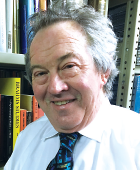Some Aspects of Burnout Are Natural For Psychiatry to Address
Abstract
Psychiatrists know all about the value of personal narratives, yet we have been reluctant to share our own. This article is part of a series on physician wellness and burnout spearheaded by APA President Anita Everett, M.D.
Many physician specialties are addressing burnout, but with limited evidence of progress. The annual Medscape survey on physician burnout has its critics, but it does indicate that burnout has generally been rising to epidemic levels, including for psychiatrists, with some exceptions (emergency medicine appears to be making some headway).

The standard remedies for burnout include diet, exercise, sleep, and pursuing personal interests. Probably more effective is the attention that is starting to be focused on the more difficult and complex systemic issues that are frustrating physicians.
We in organized psychiatry have, like physicians in some other specialties, only belatedly come to address burnout within our own profession. The APA Work Group on Psychiatrist Well-Being and Burnout has made enormous progress this past year. I believe it is possible that psychiatry may be able to contribute something that is missing in the efforts of other specialties, and that will help not only our own profession but physicians in other fields of medicine. (I am a member of the work group, but I am here speaking for myself.)
The following aspects of burnout are “naturals” for psychiatry to address, because we do so all the time in our clinical work:
Definition and diagnosis: What really are we talking about when we talk about “burnout”? As a colloquial term, burnout doesn’t have a precise definition. Generally, it’s assessed by isolating some items on the most commonly used questionnaires, say the Maslach Burnout Inventory. The term is not mentioned in DSM-5, but in ICD-10 it is included as a “life management difficulty.” A couple of European countries have included it as an official diagnosis in their classification system, with accompanying reimbursement for its treatment.
Burnout can also be confused with “compassion fatigue,” but they are different phenomena (though one could experience both). Long work hours and intense, emotionally draining experiences can eventually result in compassion fatigue. But we rarely heard of burnout in the past when physicians worked even longer hours. In my opinion, burnout seems mainly caused by being dis-empowered in our quest to heal our patients as best as we know how.
Why not invite our cracker-jack diagnostic researchers to further define what burnout is all about, which may also lead to better reversal techniques?
Protective factors: If half of physicians are not burning out, why not? Are they working in better systems, or do they have personal characteristics that protect them? Protective factors may include genetic vulnerability, prior life experiences, and adaptability (the ability to realistically lower one’s ideal expectations via cognitive reframing to prevent undue frustration with systemic obstacles).

Steven Moffic, M.D., is the 2016 recipient of the Administrative Psychiatry Award of APA and the American Association of Psychiatric Administrators and is a member of APA’s Work Group on Psychiatrist Well-Being and Burnout..
Our work group has wondered how these can best be explored. Since some research indicates brain changes associated with burnout are similar to those associated with childhood trauma, does a personal history of trauma and recovery from trauma serve as a protective factor? Bearing in mind the epigenetic principle that trauma can be passed on via genetic changes to progeny, even family history of minimal trauma may be important.
Resilience: Personal resilience is almost universally regarded as a positive for everyone, an unalloyed protective factor. But learned resilience is a part of being a doctor—we learn along the way to bear the trauma of patients dying or worsening, the stress of needing to master rapidly increasing knowledge (some of which may convince us that our earlier treatments were wrong), and the frustration of having less time to spend with patients. What if this learned resilience is simply enabling us “to keep plowing ahead” at the expense of our well-being? Our resilience can allow us to keep working in a system that needs to change or even prevent us from seeking out a better system.
Transference and countertransference: Perhaps we can better understand what psychodynamic forces help or hinder the development of burnout. That would include how individual clinicians relate to administrators as transference authority figures, at times perhaps with learned helplessness, and how our countertransference reactions to our systems plays out in our relationships with patients.
Denial: It is clear that physicians often don’t recognize that they are burning out and can even be satisfied with their work at the same time. Perhaps this reflects a counter-phobic denial of our fear that our ability to heal is being thwarted. Since we know how to address denial in our patients, some of that knowledge should be applicable to our colleagues at work.
Personal narratives: Personal narratives are our own stories—personal and professional—about how we strive to be healers, often in the face of systemic barriers that make our professional lives needlessly complicated. Personal narratives are a vital way for us as individuals to connect with our own history, and as a profession to connect with each other. Perhaps because of a tradition of not sharing about ourselves with patients (Freud’s blank screen), as well as the stigma of having our own mental health problems (not to mention the concern about whether disclosure will imperil our licensure), we have been reluctant as psychiatrists to self-disclose. You can view a brief video I made for the work group website in which I describe my own experience with burnout.
I am confident that as we put our minds to it, our ability to understand counterintuitive and deeper aspects of burnout will be invaluable, as it can supplement the work on burnout that has been occurring in other specialties. ■
Resources on burnout, including Moffic’s videotaped personal narrative, can be accessed here.



